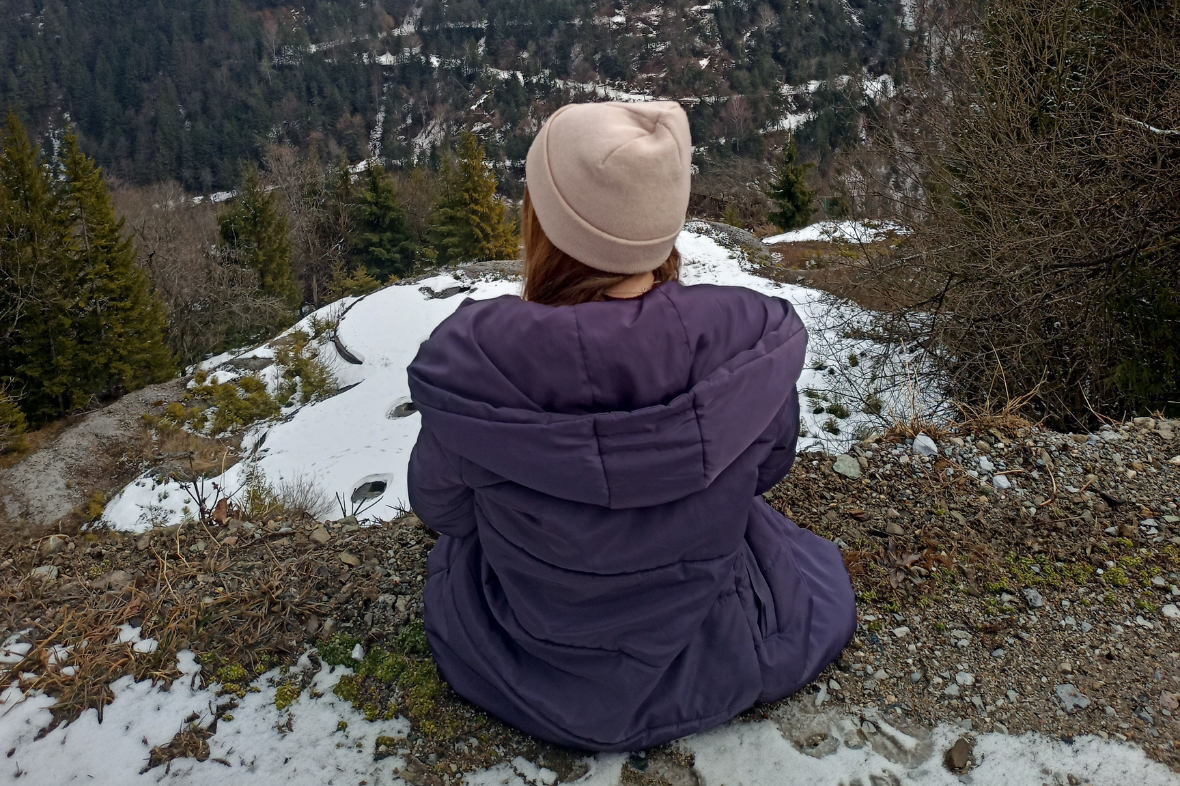
Sofia’s story: helping young Ukrainian refugees, like herself
Sofia, 26, is a Ukrainian Youth Coordinator on a programme to provide community projects and skills training for young Ukrainian refugees in Romania and Moldova. She explains how the programme is sustaining young Ukrainians’ sense of purpose as the war in their homeland continues into its third year, and shares her personal story of fleeing Ukraine, the agonizing choices it entailed, and how she has found stability in a new country.
“I am from Dnipro, an industrial city of one million people. I was working as a junior financial analyst in a Ukrainian technological company.
We didn’t imagine anything like this war could happen, but it started.
We are a family of six people and it was decided that my sister and I should leave Ukraine because we speak English and had traveled abroad before.
It was the hardest decision. We escaped by evacuation train which at that time could be attacked.
There was a danger that you can be bombed on the train during the evacuation or you can stay at your home and be attacked from the air.
Whether to leave Ukraine with or without my family was such a difficult choice. At the time, leaving my parents and my country gave me such a strong sense of regret because it was so hard to be separated. For quite some time I thought it was the wrong decision.
At first, like many Ukrainians we wanted to go to Poland. But when I received a call from a Christian college in Romania offering somewhere to stay, we went there. In Romania we found work at a youth center helping young Ukrainians. Later we met people from the Norwegian Refugee Council (NRC) and we joined this project. We were very happy that it could be helpful for Ukrainian refugees.

Sofia and other young Ukrainians at an event in Timisoara, Romania.
After one year working as a youth worker I became the Ukrainian Refugee Youth Action Fund coordinator. I look for young people in Romania and Moldova who want to start projects for the Ukrainian community but who struggle with finance. We give grants to them from the NRC. So far 13 projects have started their activities and a further six will start soon. They involve activities for mental health, educational purposes, sport activities, assistance to people with disabilities, or humanitarian aid.
We have found many talented young people among Ukrainian refugees. For example, a 17-year-old student, Mykhailo Dubov, alongside his 13-year-old brother, Maksym, and their team in Bucharest are teaching other refugees 3D designing and 3D printing. They are working on creating a device that will make water from condensation, and other practical technologies.
Another project has opened a school for Ukrainian kids. At a school in Timisoara, Ukrainian high school students are receiving professional orientation guidance. Young people are taught by professionals in different areas, so they can see which area they like the most.
The projects are giving them such important help. I remember feeling that ‘I’m alone, I’m not brave, how could I leave my country?’. Through communicating with other people, I could see that I wasn’t alone, that I wasn’t the only person having these doubts, that there are no right or wrong decisions, that no one knows what the right thing is to do during a war.
I am so thankful for what I have now. Many people lost everything, my city was attacked a few times very badly.
Now I think maybe it was needed for me to leave, especially after the rest of my family was able to join me in Romania where it is safer for all of us.
At the moment Dnipro is better, it has good air defence systems, but the uncertainty is very hard. We are still thinking about going back. But when, and how?”
The Ukrainian Refugee Youth Action Fund is funded by the Global Business Coalition for Education and operated as a partnership by the Norwegian Refugee Council, Women’s Refugee Commission and Global Refugee Youth Network. It is part of the Digital Equity for Ukraine initiative, funded by HP and coordinated by GBC-Education.
Sofia asked for her family name to be withheld.
